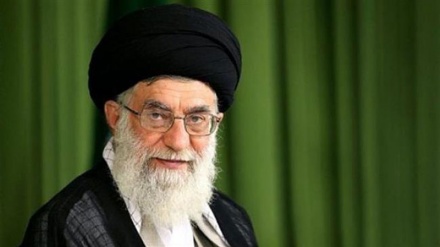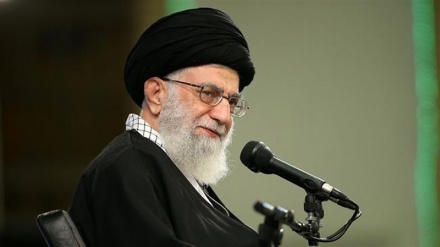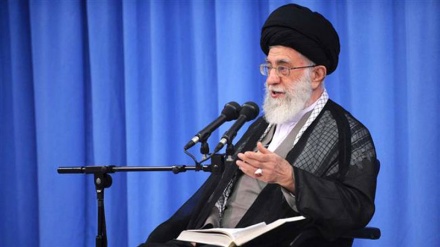In Presence of the Sun (83)
In this episode we are going to discuss the importance of self-building among youths.
The period of youth is one of the most valuable and brightest parts of the life of every individual. A young person is full of emotions, zeal and excitement and steps in the way of various experiences to recognize himself and build his own identity. Thus, if a youth pays attention to his talents and innate forces and put them in the right path he will strengthen the pillars of his life and approach bliss and perfection.
The first infallible successor of the Prophet of Islam, Imam Ali (Peace upon him) says, “There are two things whose value will not be appreciated unless by he who has lost them; one is youth and the other is health.”
Ayatollah Khamenei believes that just as human being needs bread, air, food, industry, progress and pleasures of life; he is in need of faith, piety, purity and cleanness and brightness of heart and being absorbed by divine teachings. In view of the Leader of the Islamic Revolution, the glorious period of youth is like a ready soil and field in which the seeds of merits should be planted. He maintains that the big powers have done their best for the past 150 years to omit spirituality and any inclination toward it among mankind.
Acquisition of religious teachings in youth is very important. Pursuing and obeying religious teachings by a young person will cause piety in him so that he will be immune from spiritual and ideological harms. Preservation of one’s self and moral purification have been highly recommended by the Prophet of Islam and his infallible successors especially for youths. Ayatollah Khamenei says, “It is impossible that a person who during his youth, in which emotions, sentiments and moods are growing, thriving and being shaped, has been immersed in materialism and carnal desires neither thinking of nor remembering God, neither thinking of loving God nor saints, neither thinking of accompanying saints nor remembering good and pious people; but just being indulged in absolute oblivion, then he says when he has become old: from now on I’ll be faithful! Of course, God doesn’t reject anyone. A person who has sinned for 70 years will be permitted to that road (of piety and faith); but this person will not be able to move as such or gain success and become enlightened. It is not possible unless he has practiced in youth and begun in youth. Only then it will be useful in his oldness.”
As a matter of fact, cognizance, worship, struggle, piety and shunning sins are all constituents of sublimity and perfection of the individual and shape human character. All of these are mainly rooted in the period of youth.
Ayatollah Seyyed Ali Khamenei notes, “You young people should be constantly vigilant. Deepen your religious and revolutionary teachings. Like what we have in some of the hadith and prayers, try to be like sheets of steel, impenetrable and penetrating. Be keen and have firm resolve against the enemy if you intend to provide and preserve this identity completely for yourselves. God willing, people will join you in the next generations in future. If you want this pure tree and this sacred current continue you have to reinforce the pillars of teachings in your hearts.”
One of the ways of acquiring teachings in youth is recitation of the holy Qur’an and reflecting in its luminous ayahs. It is narrated in a hadith that if a person is used to reciting the Qur’an in his youth it will be mixed with his flesh and skin.
The Leader elaborates on this, “I recommend our dear youths to get habituated with Qur’an and sit by the Qur’an. [As it reads in Nahj al-Balagha]: Nobody associates with the Qur’an except he stands while there is an increase or decrease for him; an increase in guidance and a decrease in blindness of heart. Every time that you associate with the Qur’an a curtain of ignorance will be removed for you, a spring of illumination will be opened and flow in your heart. Habituation with the Qur’an, association with the Qur’an, understanding the Qur’an, reflecting in the Qur’an; these are necessary.”
A person who is associated and in communion with the holy Qur’an will attain real happiness. Imam Sajjad (AS) was a true manifestation of such a person when he said, “If all the people in the east and west die and there is no living creature on planet Earth I won’t fear loneliness as I am with the Qur’an.”
Another way of acquiring cognizance in youth is attending at the gatherings of prayer and supplication. One of the best of such gatherings is E’tekaf. E’tekaf means staying at mosque for a few days and spending one’s time on prayer, supplication and thinking. The three days of 13th, 14th and 15th of the Islamic month of Rajab are one of the examples of E’tekaf. Ayatollah Khamenei describes his feeling of this great event, saying, “Really, how a beautiful and fragrant scene is that a large number of our youths, unlike the common practice of the world youths who are plunged in carnal desires and pleasures of flesh, fast for a few days and go to sojourn in a mosque.”
The days of E’tekaf require paying attention. The Leader recommends those who go on E’tekaf to make sure to practice self-attention. It means in their talking, association, studying, thinking, planning for future, in all of these they should be heedful of God’s satisfaction and prioritizing his commands over their desires.
Ayatollah Khamenei maintains that the days of E’tekaf shouldn’t be spent on just prayer and supplication but building friendly communication with other brothers, reciprocal learning and so on can provide opportunities that may occur during this period.
RM/ME


